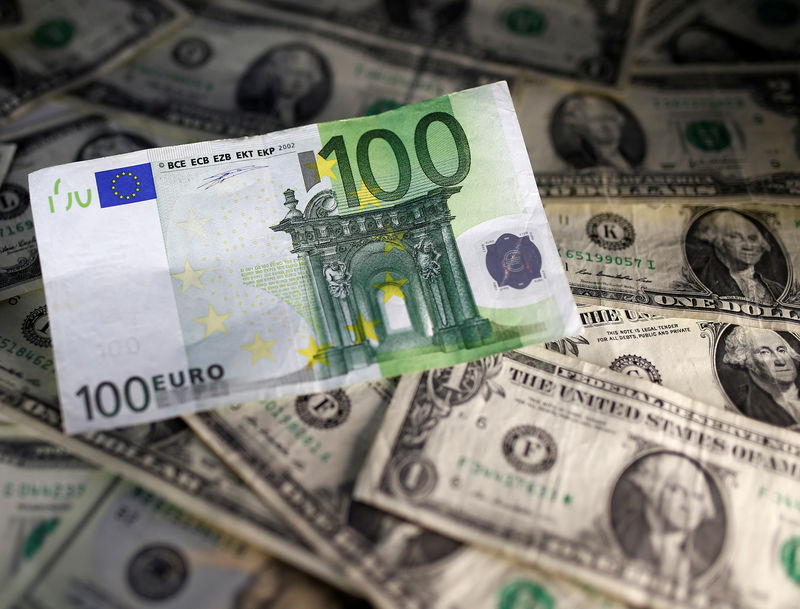Investing.com - The euro extended losses against the dollar on Thursday, falling to the day’s lows after data indicating that euro zone inflation is moderating eased pressure on the European Central Bank to start tightening monetary policy.
EUR/USD touched lows of 1.0721, the weakest since March 21 and was at 1.0725 by 09.15 ET, off 0.36% for the day.
The single currency was pressured lower after data showing that German annual inflation slowed to 1.6% this month from 2.2% in February, which was the highest rate since August 2012.
The figures indicated that price pressures remain modest in the euro zone’s largest economy.
The euro zone was to release preliminary data on inflation for March on Friday that was expected to show that annual inflation slowed to 1.8% from 2% last month.
The data came after ECB chief economist Peter Praet said Thursday that the bank is still not convinced that the recent pickup in inflation will be durable and reiterated that underlying inflation pressures remain subdued.
The euro had already weakened after Reuters reported on Wednesday that ECB policymakers are wary of adjusting their policy message in April after the bank’s message at its March 9 meeting was overinterpreted by markets.
The ECB acknowledged the improving euro zone economy with a tweak of its guidance at its meeting, leading to expectations that it is moving closer to winding down its stimulus program and eventually raising interest rates.
The euro extended early losses against the pound, and was last down 0.67% at 0.8600.
Sterling remained supported after British Prime Minister Theresa May formally triggered the UK’s exit from the European Union on Wednesday, launching a two-year negotiation process before the divorce comes into effect in late March 2019.
The U.S. dollar index, which measures the greenback’s strength against a trade-weighted basket of six major currencies, was up 0.22% at 100.00.
Demand or the dollar continued to be underpinned after data showing that U.S. fourth quarter growth was revised up to an annual pace of 2.1% from the previously reported 1.9% rate, on the back of robust consumer spending.
At the same time, the U.S. Labor Department reported that initial jobless claims fell by 3,000 last week to 258,000.
The dollar index had slumped to four-and-half month lows of 98.67 on Monday in the wake of President Donald Trump’s failed healthcare overhaul bill.
The setback underlined fears that Trump could struggle to push through the rest of economic agenda, which included pledges on tax cuts and infrastructure spending.
